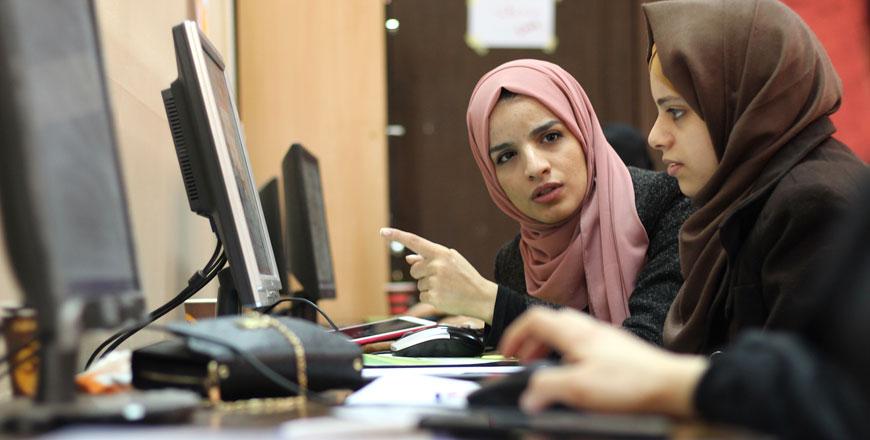- Local News
- Thu-2020-07-16 | 03:26 pm

The programme will provide the skills needed for the future of work and boost the employability of young people, "with a strong focus on including youth most at risk of being left behind”, read the statement.
"The disruption caused by the COVID-19 pandemic has highlighted the challenges of a growing digital divide, in particular the digital skills gap impeding young women’s participation in the labour force,” Ettie Higgins, Deputy Representative, UNICEF Jordan, said in the statement.
"UNICEF’s partnership with DOT is accelerating the reskilling of youth for the future of work in Jordan and contributing to a more equal and inclusive recovery,” Higgins added.
Emphasising the importance of this partnership Hamza Shraideh, the Acting Country Director for DOT Jordan, said: "Working together, DOT and UNICEF are providing vulnerable youth with the digital and employability skills demanded by the current labor market, while also connecting them with work-placement opportunities to help them get started.”
"Despite the challenges facing the labour market due to the COVID-19 pandemic, introducing and promoting the concepts of remote working, micro-work and freelance is providing much-needed hope to young people and encouraging them to continue their learning journey and successful transition to employment,” Shraideh said in the statement.
As well as receiving essential digital skills training, 500 of the course participants will progress to an advanced programme that will accelerate their job-readiness, the statement said.
Programme graduates will be supported to access apprenticeships and microwork opportunities in the digital economy, it added.
The partnership’s "innovative approach to learning means that it has not been disrupted by the COVID-19 pandemic”, with remote classes ongoing for more than 300 students — 75 per cent who are women — in Amman, Madaba, Tafilah, Zarqa and Irbid, the statement said.
UNICEF and DOT are collaborating with the Ministry of Digital Economy to ensure young people enrolled in the programme who lack equal access to digital learning are provided with laptops, mobile phones and data bundles.
The new partnership is under UNICEF’s "Amaluna” programme, providing over 2,600 young people and women with training and employment in 2020.
A UNICEF survey during COVID-19 has shown that close to 80 per cent of youth graduates have been directly impacted by the pandemic, from losing their job to reductions in pay.
World Youth Skills Day, designated by the UN General Assembly in 2014, is designed to acknowledge and celebrate the importance of equipping young people with skills for employment, decent work and entrepreneurship. This year’s theme is "Skills for a Resilient Youth”, concluded the statement.









